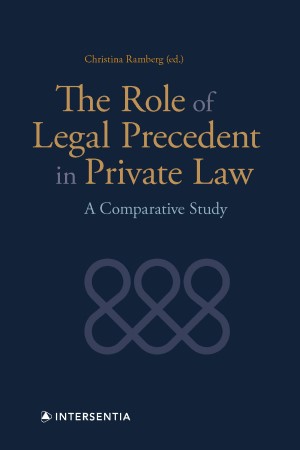
This book is aimed at analysing how court decisions (precedent) function as a source of law by drawing on the comparison between jurisdictions from all over the world, from different legal families and with diverse legal traditions, including Brazil, China, England & Wales, France, Germany, Italy, Russia, South Africa and Sweden.
The contributions cover various aspects such as:
The contributions to this book highlight the differences between the jurisdictions on a formal level and points to how precedent is considered a source of law. Addressing the ‘mystery’ that surrounds precedents, the book explores where there is a significant gap between what is said and what is actually done in various jurisdictions.
The book gives a compelling analysis into how precedents being used as a source of law is an arrangement well-suited to accommodating what all jurisdictions aspire to, namely a legal order that promotes certainty and efficiency by a coherent application of the law and a law that is in harmony with legitimate expectations.
The contributions provide stimulating materials for comparison, exploring nuanced attitudes (both traditional and modern), different court systems and the different relationships between the judiciary and the legislature.
The contributions show that the discrepancies that exist do not necessarily entail any fundamental difference in the actual de facto importance of precedents in each jurisdiction, but they point to various difficulties in coping with precedent as a source of private law, such as precedent inflation and how to identify legal rules from a precedent.
The increasing importance of the precedent as a source of law has been acknowledged by all the compared jurisdictions. The book highlights the various approaches taken to this, which enhances the methodological understanding of precedents in our own national law. By such understanding we will be better equipped to cope with the implications for the future path in dealing with precedents.
Ultimately, the book serves to scrutinise the way precedents function in national law, how rules can be identified and the interaction between the legislator and judges.